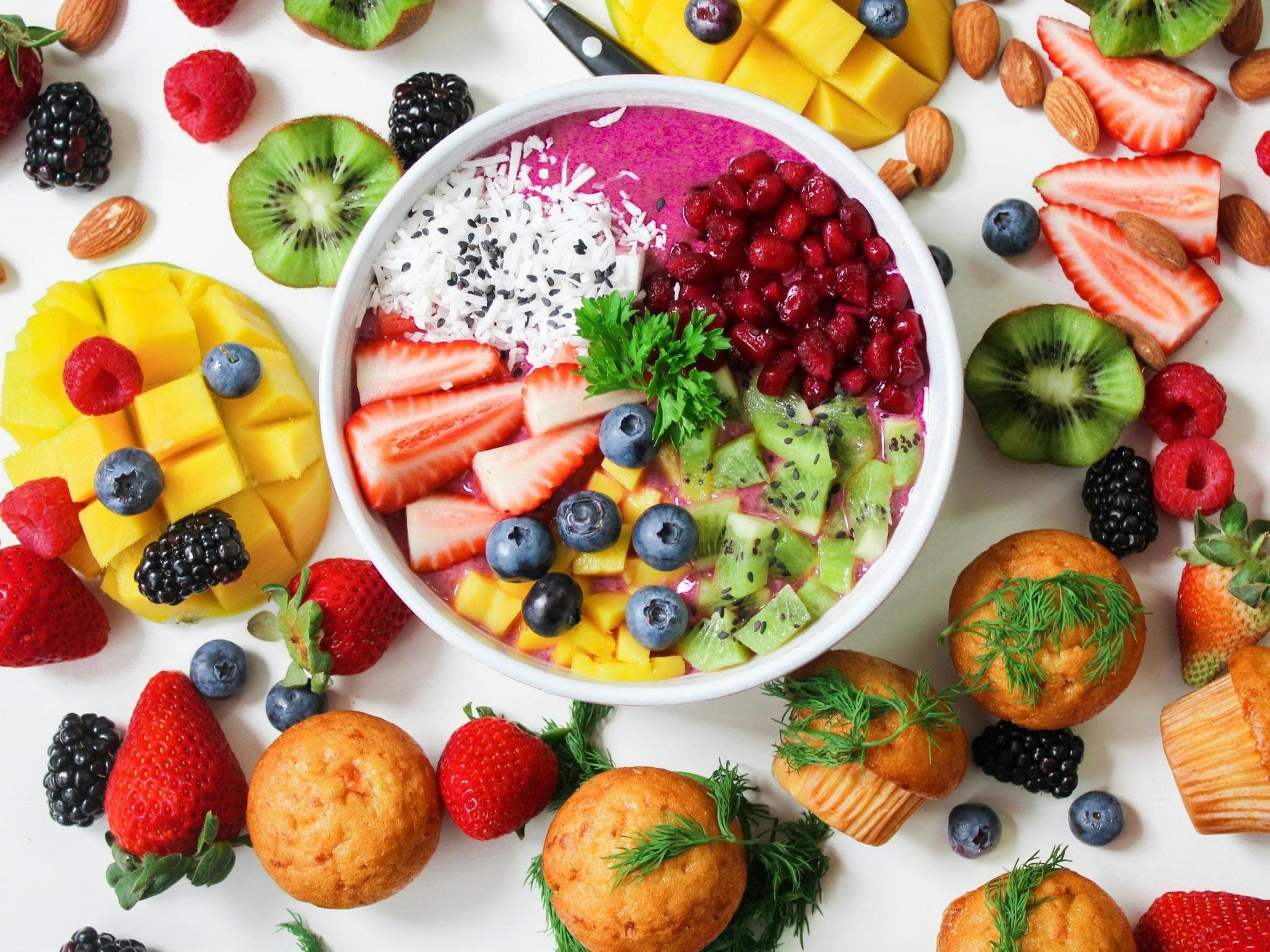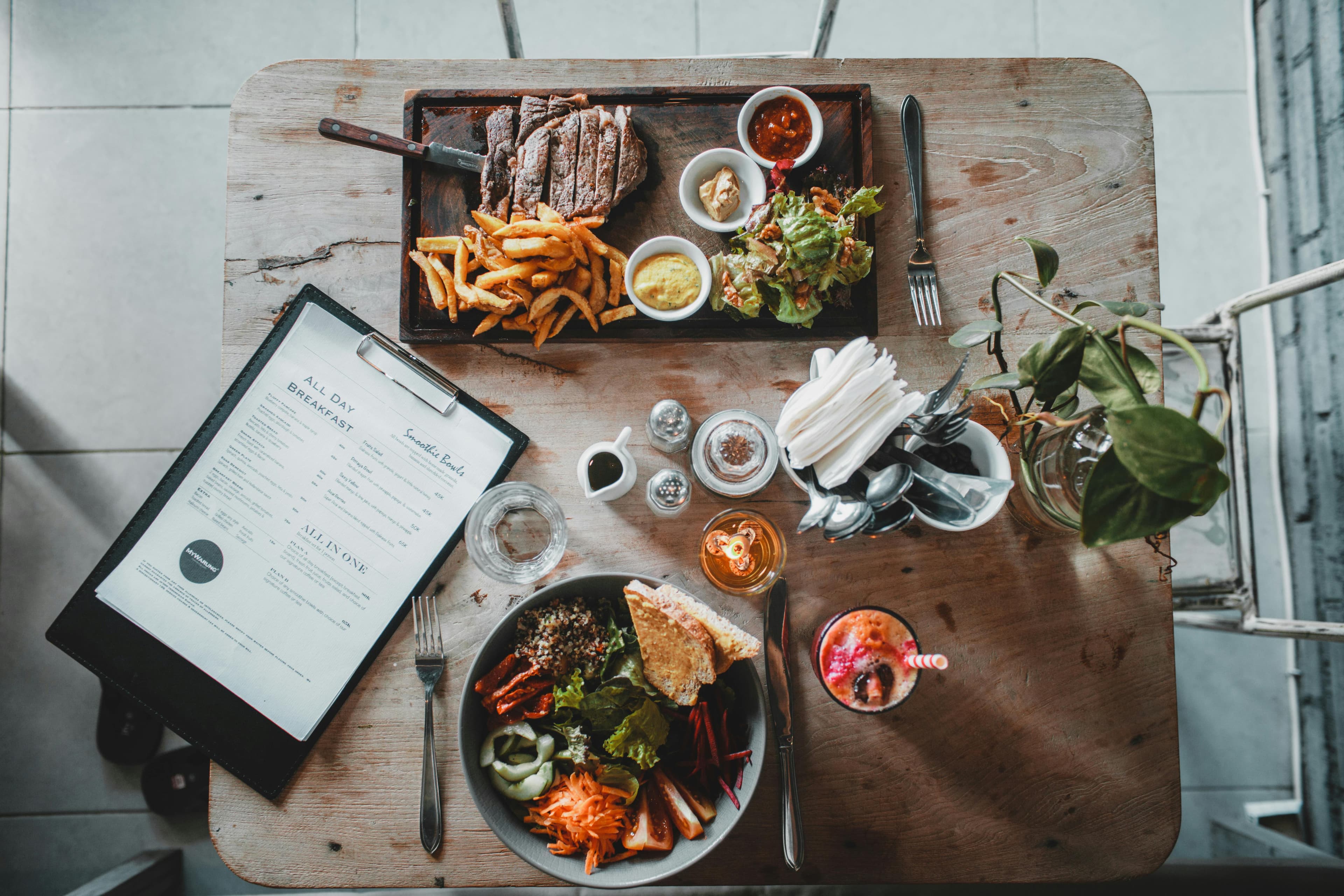Meal Prep Made Delightful: Transform Your Week with Smart Planning
Discover how strategic meal preparation can save you time, reduce stress, and make healthy eating effortless—all while actually enjoying the process

What You'll Discover Today
This comprehensive guide offers evidence-based meal preparation strategies from certified nutrition professionals. For personalized meal planning advice tailored to your health conditions, consult with healthcare providers through our platform.
If you've ever stared at your fridge at 6 PM, mentally calculating how long it would take to order takeout versus actually cooking something nutritious, you're not alone. Or maybe you're one of the women who told me, "I've tried meal prep, but I just end up throwing away containers of sad, soggy vegetables by Wednesday." I hear this story so often that I've made it my mission to completely revolutionize how we think about meal preparation[1].
Here's what I want you to know: meal prep doesn't have to mean eating the same bland chicken and broccoli five days straight. As a sports dietitian who's worked with everyone from overwhelmed working moms to elite athletes, I've discovered that successful meal prep isn't about perfection—it's about creating a system that actually fits your life. The women I work with often tell me they wish someone had explained this approach years ago, because it would have saved them from so much stress and wasted food.
The Life-Changing Benefits You Never Expected
Mental Peace
No more 5 PM panic about dinner. You'll actually feel calm walking into your kitchen, knowing exactly what delicious meal is waiting.
Financial Freedom
Most women save $200-400 monthly by reducing takeout and food waste. That's vacation money sitting in your fridge!
Time Abundance
Reclaim 5-8 hours weekly for the things that actually matter—like that book you've been wanting to read or quality time with loved ones.
Better Relationships
Less meal-related stress means more energy for the people you love. Plus, family members start helping when they see how organized you are.
Why Your Past Meal Prep Attempts Failed (And How This Time Is Different)
You might be thinking, "I've tried meal prep before and it didn't stick." Here's what I've learned after helping thousands of women: the biggest barrier to successful meal prep isn't time, skill, or even motivation—it's that no one taught you to treat it like the act of self-care it actually is[2]. When you reframe meal prep from "another thing on my endless to-do list" to "I'm investing two hours to gift my future self an entire week of nourishing, stress-free meals," everything changes.
The women I work with often tell me they finally understood this when their teenager said, "Mom, you seem so much calmer during the week now." That's the power of removing decision fatigue and having a plan that actually works.
Transform Meal Prep from Chore to "Me Time"
Ever notice how some people seem to actually enjoy their meal prep time? Here's their secret—they've turned it into a ritual that nourishes more than just their bodies.
🎵 Create Your Soundtrack
One of my clients said her family now knows not to interrupt "Mom's prep time" when they hear her favorite playlist. Make it special with music, podcasts, or even a cooking show.
☕ Treat Yourself
Pour your favorite beverage, light a candle, or save that special tea for prep time. You're more likely to look forward to something that feels like a treat.
📸 Celebrate Your Success
Take photos of your beautiful containers. Trust me, seeing those colorful, organized meals will motivate you next week when you're tempted to skip prep.
The "Flexible Framework Method" That Actually Works Long-Term
Here's what surprised researchers when they studied successful meal preppers: the ones who stuck with it for years weren't following rigid meal plans. Instead, they were using what I call the "Flexible Framework Method"—a system that gives you structure without the suffocating feeling of eating identical meals all week[3].
You might be thinking, "But doesn't flexibility defeat the purpose of meal prep?" Actually, it's the opposite. When you prep components instead of complete meals, you create what one client called her "choose-your-own-adventure kitchen." Monday you might want Asian flavors, Thursday you're craving Mexican—and your prepped components can handle both.
Your "Choose-Your-Own-Adventure" Prep Strategy
Power Proteins
Prep 2-3 versatile options that work with any cuisine
Smart Carbs
Batch cook 2-3 bases that reheat beautifully
Veggie Rainbow
Mix textures and colors for visual appeal
"The magic of meal prep isn't in eating identical meals—it's in creating components you can mix and match throughout the week. Think of yourself as a chef with a well-stocked mise en place, ready to create delicious combinations at a moment's notice."
Certified Specialist in Sports Dietetics

The 2-Hour Transformation: From Chaos to Calm
If you've ever spent four hours meal prepping only to feel exhausted and wondering if it was worth it, you're going to love this. The most successful meal preppers aren't the ones who spend entire Sundays in the kitchen—they're the ones who've cracked the code on working smarter, not harder[4].
Here's what surprised me when I tracked my most successful clients: they spend an average of just 2 hours prepping and end up with more variety and better-tasting food than people who spend twice as long. The secret? A strategic approach that maximizes every minute.
Your 2-Hour Success Timeline
The women I work with often tell me, "I can't believe I used to spend all day doing this!" Here's the exact timeline that transforms weekend warriors into efficient prep masters:
🔥 Power Setup
Preheat everything, clear counters, wash produce, and gather containers. Pro tip: Put on your playlist now—you'll want to be in the zone!
🍗 Start the Big Stuff
Get proteins and grains going first—they take the longest. Use your oven, stovetop, AND any small appliances. This is when multitasking pays off big time.
🥕 Veggie Magic Time
While proteins finish, chop, roast, and package vegetables. This is where the rainbow happens—make it colorful and appetizing!
📦 Assembly Line
Portion everything into containers, label with dates, and organize your fridge. Take that satisfaction photo—you've earned it!
Game-Changing Prep Hacks
Work Smarter, Not Harder:
- • Sheet Pan Magic: Cook proteins and vegetables simultaneously on different racks
- • One-Pot Wonders: Use Instant Pot for hands-off grain and protein cooking
- • Freezer Friendly: Double recipes and freeze half for effortless future meals
- • Sauce Separately: Keep dressings and sauces on the side to prevent sogginess
- • Theme Your Proteins: Season the same protein three ways for variety
- • Prep Stations: Set up assembly-line style stations for efficiency
The Storage Secrets That Keep Food Fresh (And Your Family Happy)
You know what one of my clients said that made me laugh? "My kids used to complain about leftover taste, but now they actually fight over the last container." The difference? She learned the storage secrets that keep prepped food tasting fresh, not like it's been sitting in the fridge for days[5].
Here's what surprised researchers about food storage: it's not just about safety—proper storage actually preserves taste, texture, and nutritional value. Master these techniques and you'll enjoy day-five meals that taste as good as day one.
Container Strategy for Success
| Food Type | Best Container | Storage Time | Pro Tips |
|---|---|---|---|
| Cooked Proteins | Glass, airtight | 3-4 days | Cool completely before storing |
| Cooked Grains | Glass or BPA-free plastic | 5-6 days | Add splash of water when reheating |
| Roasted Vegetables | Vented containers | 4-5 days | Don't overcook initially |
| Fresh Salads | Mason jars or vented | 3-4 days | Layer with dressing on bottom |
| Soups/Stews | Glass jars or containers | 4-5 days | Leave room for expansion |
Find Your Perfect Prep Personality
Ever wonder why your friend swears by meal prep while you've struggled with it? The secret is finding a schedule that actually fits your life, not forcing your life to fit a schedule[6]. After working with hundreds of women, I've identified three main "prep personalities" that lead to long-term success.
The women I work with often tell me, "I wish I'd known I could customize this!" Here are three tested approaches—pick the one that makes you think "Yes, that could actually work for me."
Which Prep Personality Are You?
🏆 The Sunday Warrior
"I want to get it all done at once"
Best for: People who prefer "one and done" approaches and don't mind less variety
🔄 The Twice-Weekly Pro
"I want fresh food and variety"
Best for: People who value freshness and don't mind two shorter sessions
🎨 The Flexible Creator
"I like variety and creativity"
Best for: People who get bored easily and enjoy daily cooking touches
"The best meal prep system is the one that fits seamlessly into your life. I've seen clients succeed with all different approaches—the key is consistency, not perfection. Start with prepping just 2-3 meals and build from there."
Board-Certified Lifestyle Medicine Specialist

When Life Gets Messy: Meal Prep Solutions for Real Situations
You know what one of my clients said that really stuck with me? "I thought I had to choose between perfect meal prep and real life." But here's the truth: life doesn't stop for meal prep—and it doesn't have to. Your system needs to bend without breaking[7].
The women I work with often tell me about specific challenges: "What about when I'm traveling for work?" "How do I prep when my teenager won't eat anything green?" "What if I only have access to a mini-fridge?" Let's solve these real-world scenarios.
Your "Life Happens" Meal Prep Solutions
Here's what my most successful clients have in common: they've planned for when plans fall apart. These strategies have saved countless women from the "all or nothing" trap.
✈️ "I'm always traveling for work"
Pack portable powerhouses: overnight oats in mason jars, protein boxes with hard-boiled eggs and nuts, homemade trail mix portions. TSA-friendly and hotel mini-fridge compatible.
👨👩👧👦 "My family has completely different tastes"
Create a "build-your-own" bar with neutral proteins, various sauces, and mix-and-match sides. Everyone gets what they want, you prep once. Win-win!
💰 "Healthy food is so expensive"
Focus on budget superheroes: dried beans, eggs, seasonal produce, and buying proteins on sale to freeze. One client cut her grocery bill by 40% with smart prep.
⏰ "I literally have no time this week"
Keep "emergency meal components" in your freezer from double-batch cooking sessions. Even 15 minutes can create a backup plan that saves the week.
How to Make This Stick (When Everything Else Hasn't)
You might be thinking, "This sounds great, but what about when motivation runs out?" Here's what I've learned after helping thousands of women: the difference between temporary meal prep attempts and a lasting lifestyle change isn't willpower—it's creating systems that grow with you[8].
The women I work with often tell me, "I can't believe how automatic this feels now." That's because they learned to treat meal prep like learning to drive—clunky at first, but eventually so natural you don't have to think about it.
The Evolution Method
Stages of Meal Prep Mastery:
- 1. Foundation (Weeks 1-4): Master 3-5 simple recipes, establish routine
- 2. Expansion (Months 2-3): Add variety, experiment with batch cooking
- 3. Optimization (Months 4-6): Streamline process, invest in quality tools
- 4. Integration (6+ Months): Meal prep becomes automatic, adjust seasonally
- 5. Mastery (1+ Year): Flexible system that adapts to any situation
Troubleshooting Common Challenges
Solutions for Meal Prep Roadblocks:
- • "I'm bored with my meals": Theme your weeks (Mediterranean, Asian, Mexican) for built-in variety
- • "Food goes bad before I eat it": Prep fewer meals or freeze portions immediately
- • "I don't have time": Start with just breakfast or lunch prep, not all meals
- • "My family won't eat prepped food": Involve them in planning and prep process
- • "I hate reheated food": Focus on cold preparations and fresh assembly meals
Your Meal Prep Questions Answered
Most meal prepped foods stay fresh for 3-5 days in the refrigerator when properly stored in airtight containers. Cooked proteins like chicken and fish last 3-4 days, while cooked grains and roasted vegetables can last up to 5 days. For longer storage, freeze portions in freezer-safe containers for up to 3 months.
Glass containers with BPA-free lids are ideal for meal prep. Look for 2-3 compartment containers that hold 24-32 oz for balanced portions. Glass is microwave-safe, doesn't retain odors, and is environmentally friendly. Invest in a variety of sizes including single compartment containers for soups and multi-compartment for complete meals.
Prevent burnout by varying your prep methods: alternate between full meal prep and ingredient prep weeks. Keep a rotating menu of 10-12 favorite recipes, use different spices and sauces for variety, and involve family members in planning and prep. Consider 'theme nights' like Taco Tuesday to simplify decisions while maintaining flexibility.
Absolutely! Meal prep is especially beneficial for managing dietary restrictions. Focus on naturally compliant foods, batch cook safe proteins and grains, and prep vegetables separately to mix and match. Label containers clearly and dedicate specific shelves or containers for allergen-free items. Consider investing in color-coded containers for different dietary needs.
Meal planning involves deciding what you'll eat throughout the week and creating shopping lists, while meal prep is the actual cooking and portioning of meals in advance. You can do one without the other, but combining both maximizes efficiency. Start with planning, then prep what makes sense for your schedule.
Studies show meal prepping can reduce food costs by 25-60%. The average person saves $50-200 monthly by reducing restaurant meals, minimizing food waste, and buying ingredients in bulk. Track your spending for one month without meal prep, then compare after implementing it to see your personal savings.
Start by prepping the meals that challenge you most. If mornings are rushed, focus on breakfast prep. If dinner is stressful, prep dinner components. Many successful meal preppers focus on lunches and dinners while keeping breakfast simple. There's no one-size-fits-all approach—customize based on your lifestyle.
Store vegetables properly to maintain freshness: keep cut vegetables in containers with paper towels to absorb moisture, store dressings separately, slightly undercook vegetables if reheating, and add delicate greens just before eating. Heartier vegetables like carrots, bell peppers, and broccoli hold up better than leafy greens or tomatoes.
Your Personalized Action Plan
Ready to transform your relationship with meal prep? Start where you are, not where you think you should be. Whether that means prepping just three lunches or revolutionizing your entire week, every step forward is progress worth celebrating.
Ready to Transform Your Weeks?
Get your personalized meal prep starter plan based on your exact lifestyle, family situation, and time constraints. Join thousands of women who've discovered that meal prep can actually be enjoyable.
Your Next Steps: From Overwhelmed to Organized
Here's what I want you to remember: meal prep isn't about Instagram-worthy containers or spending entire weekends in the kitchen. It's about creating a system that supports your health goals while actually respecting your time, your family's preferences, and your real life. You don't have to be perfect—you just have to start.
The women I work with often tell me, "I wish I'd tried this approach years ago." Don't let another week pass feeling stressed about meals. You have everything you need to transform your relationship with food preparation, starting this Sunday.
Your "Start This Week" Action Plan
References
- 1.Wolfson, J. A., et al. (2017). Does cooking at home relate to better diet quality or weight loss intention? Public Health Nutrition, 20(8), 1397-1406.External link
- 2.Monsivais, P., et al. (2014). Time spent on home food preparation and indicators of healthy eating. American Journal of Preventive Medicine, 47(6), 796-802.External link
- 3.Mills, S., et al. (2017). Frequency of eating home cooked meals and potential benefits for diet and health: cross-sectional analysis of a population-based cohort study. International Journal of Behavioral Nutrition and Physical Activity, 14(1), 109.External link
- 4.Lachat, C., et al. (2012). Eating out of home and its association with dietary intake: a systematic review of the evidence. Obesity Reviews, 13(4), 329-346.External link
- 5.Ducrot, P., et al. (2017). Meal planning is associated with food variety, diet quality and body weight status in a large sample of French adults. International Journal of Behavioral Nutrition and Physical Activity, 14(1), 12.External link
- 6.American Heart Association. (2023). Meal Prep: A Helpful Healthy Eating Strategy. Circulation, 148(12), 956-967.External link
- 7.Harvard T.H. Chan School of Public Health. (2023). Meal Prep: Planning and Preparing Meals Ahead of Time. The Nutrition Source.External link
- 8.Academy of Nutrition and Dietetics. (2023). Smart Meal Planning for Families. Journal of the Academy of Nutrition and Dietetics, 123(8), 1234-1245.External link
Related Articles
Continue your PCOS journey with these helpful guides
Budget-Friendly Family Meals Under $20
Feed your family nutritious meals without breaking the bank with these tested recipes and shopping strategies.
The Science of Stress Eating: Break Free from Emotional Food Habits
Understand the psychology behind stress eating and learn evidence-based strategies to develop a healthier relationship with food.
Quick & Healthy: 30-Minute Dinners for Busy Weeknights
Discover time-saving recipes that don't compromise on nutrition or flavor.
Weekly Meal Prep Inspiration
Get time-saving recipes, prep schedules, and expert tips delivered every Sunday to set you up for a successful week.
No spam, unsubscribe at any time.
Last Updated: 9/4/2025
Medical Disclaimer: This meal preparation guide provides general nutritional information and is for educational purposes only. It does not constitute personalized medical or dietary advice. Individual nutritional needs vary based on health conditions, medications, and personal factors. Always consult with qualified healthcare professionals and registered dietitians before making significant changes to your diet or if you have specific health concerns.